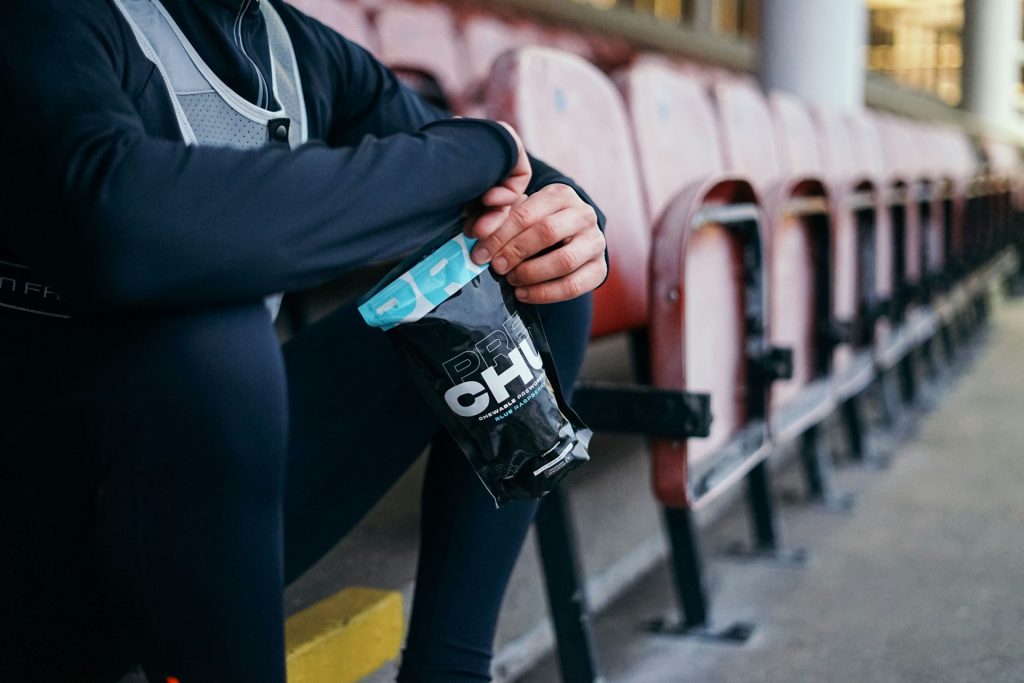Have you ever imagined having endless energy to breeze through your cardio workouts? Picture a secret method that could give you this boundless energy, making every cardio session a step towards your best physical shape. In our search for that extra boost of energy and endurance to make our cardio workouts exceptional, pre workout for cardio stands out as a promising solution.
But with so many claims and excitement surrounding it, does it truly have the ability to transform your workout routine? Let’s explore together, delving into the world of pre-workout supplements and how they really affect your cardio sessions. Is this the missing piece we’ve been looking for, or just another product in the crowded market of fitness supplements? Let’s find out.
Table of contents
MORE keyboard_double_arrow_down LESS keyboard_double_arrow_up
What is Pre Workout?
A pre-workout is a type of sports supplement that many people use to give their bodies an extra boost and improve their performance while working out. These supplements can vary in what they contain, depending on who they’re made for and what kind of exercise they’re meant to enhance.
You can find pre-workouts in different forms, like powders, liquids, or pills, and they may or may not include stimulants. Some pre-workouts have just one ingredient, while others have multiple ingredients, known as multi-ingredient supplements (MIPS).
Does Pre Workout Actually Work?
Research suggests that pre-workout supplements may indeed have benefits in terms of enhancing muscular endurance and improving performance.
For instance, a study involving 13 males who consumed a pre-workout dietary supplement before their workout showed improvements in anaerobic peak and mean power compared to those who took a placebo or the baseline measurements.
Similarly, another study examined the effects of pre-workout on 24 moderately-trained recreational athletes engaged in three weeks of high-intensity interval training. It found enhancements across various measures, including anaerobic running performance and VO2 max, indicating improved efficiency in oxygen utilization during higher intensity workouts.
Despite these findings, experts caution that more research is needed to fully understand the safety and effectiveness of pre-workout supplements before drawing definitive conclusions.
Additionally, it’s worth noting that the Food and Drug Administration (FDA) does not regulate pre-workout supplements for safety or efficacy. Therefore, it’s advisable to consult with a healthcare professional before trying any pre-workout product.
What Are The Ingredients in Pre-Workout?
A pre-workout blend is carefully formulated with various ingredients to elevate energy levels, enhance focus, combat fatigue, and expedite post-workout recovery. These ingredients typically include beta-alanine, taurine, citrulline malate, and branched-chain amino acids (BCAAs).
BCAAs are usually obtained from dietary sources, but individuals aiming for higher performance levels may require additional supplementation. In pre-workouts, BCAAs are often present in a specific ratio of leucine, isoleucine, and valine, commonly at a 2:1:1 ratio. Studies have suggested that BCAAs can aid in post-workout recovery.
Caffeine is another common ingredient found in pre-workout supplements. Research indicates that caffeine can enhance muscular endurance, boost energy levels, and improve the “pump” experienced during workouts. It’s included to heighten focus by providing a mental and physical boost. However, a caffeine-free pre-workout, formulated with tailored amino acids, can achieve similar results.
Some pre-workouts also contain creatine, which can improve physical performance during intense, short bursts of exercise. ATP, the primary energy source for high-intensity workouts, benefits from creatine supplementation.
Combining these supplements sets your body up for a productive workout. Choosing the right supplement for your needs can help you train harder, stimulating muscle growth. While traditionally associated with weight training, the individual benefits of each component suggest that pre-workouts can also be advantageous for cardio workouts.
Understanding the purpose and components of pre-workouts leads to questions about their relevance to cardiovascular exercise and how to integrate them effectively into cardio routines. That’s what we’ll explore next.
Can You Use Pre Workout For Cardio?

There’s a common belief that pre-workouts are mainly for serious gym enthusiasts and weightlifters. While there’s ample scientific support for using pre-workouts in those contexts, recent research indicates that they can also benefit cardio workouts.
So, can you use pre workout for cardio? And is pre workout good for cardio? in short, yes. Pre workout is good for cardio and can be taken before cardio exercises like jogging, endurance sports, or high-intensity interval training (HIIT). These supplements offer an energy boost and various other advantages, making them popular choices for cardiovascular activities.
In weight training, the extra energy boost aims to enhance strength and power, facilitating heavier lifts. On the other hand, in cardio workouts, pre-workouts are tailored to prolonging physical activity, focusing more on endurance.
However, it’s essential to recognize that not every cardio session requires this additional energy boost. For instance, a leisurely walk at a steady pace may not necessitate pre-workout supplementation.
Conversely, high-intensity interval training (HIIT) can greatly benefit from pre-workout supplements. Picture a session involving alternating between sprinting and walking or light jogging in intervals; pre-workout supplementation can be particularly effective here.
When it comes to cardio, there are two main categories: steady-state and high-intensity interval training. Steady cardio involves low-intensity, consistent-paced activities, while HIIT combines low and high-intensity exercises in a structured manner.
Can You Use Pre-Workout Before Running?
Absolutely, using a pre-workout before going for a run is perfectly viable. The ingredients in pre-workouts are specifically designed to boost energy levels and enhance focus, both of which are beneficial for running.
In the case of long-distance or marathon running, a pre-workout that includes electrolytes could be advantageous for maintaining endurance and keeping fluid levels balanced within the muscles. Electrolytes are typically lost through sweat during prolonged exercise and need to be replenished after about an hour of activity.
However, it’s worth noting that combining pre-workout with electrolytes isn’t essential. Both supplements can be taken separately and still offer the same benefits.
Pre-Workout And HIIT
Pre-workout supplements might be more helpful for HIIT workouts than slower exercises because HIIT is all about going really hard in bursts.
Since HIIT keeps switching between intense effort and rest, a pre-workout can give you a steady stream of energy to keep pushing through those tough parts. That doesn’t mean pre-workout isn’t good for slower workouts, but it can really shine in HIIT.
How Should You Take Pre Workout For Cardio?
Success in your cardio efforts often comes down to the details, and how you use pre workout for cardio is no exception. Let’s break down the essentials.
When to Take Pre-Workout (Timing)
Pre-workouts with caffeine are usually recommended 30 minutes to an hour before your workout. This is because caffeine enters your bloodstream quickly and reaches its peak effect in about an hour.
This timing allows the pre-workout to boost your energy and lets you warm up before the main part of your exercise. It also helps you focus when you need it most. Because of the caffeine, pre-workouts can keep working in your body for up to two hours after you take them.
The term “half-life” refers to the time it takes for a substance’s effectiveness to be cut in half. Caffeine’s half-life is about 4-6 hours. This means you’ll still have a good amount of caffeine in your system after that time. This can also help you with endurance during your workout.
How Much Pre-Workout to Take (Dosage)
While pre-workouts are generally considered safe, taking them every day can cause side effects. Ingredients like caffeine, in high amounts, can upset your stomach. The European Food Safety Authority suggests that a healthy adult can safely consume up to 400mg of caffeine per day. It’s best to avoid exceeding this amount.
Avoiding Tolerance
Taking pre-workout too often can make your body less responsive to it. Pre-workouts are meant to give your workouts a boost when you need it.
The best way to avoid tolerance is to take breaks from pre-workout. You can also try switching to a pre-workout that doesn’t have caffeine. Always read the label carefully and only take the recommended dosage.
How Long Does Pre-Workout Last?
Different pre-workouts last for various amounts of time depending on what’s inside them and who takes them. Studies show that creatine, a common ingredient, reaches its peak effect in the body around an hour after you take it and stays strong for up to four hours.
Caffeine, another popular ingredient, works a little faster, peaking within 30 minutes to an hour. But how long it stays in your system depends on your health history, it could be anywhere from a few hours to ten!
The Best Pre Workouts According to Experts

There are so many supplements available these days, from grocery stores to health shops and online retailers, that it can be overwhelming. Picking a pre-workout supplement is especially tricky because they come in all sorts of forms, like powders, pills, and even drinks.
To help you out, we’ve compiled a list of the top pre-workouts for 2024, based on the recommendations of three certified experts. So, if you’re looking for a good pre workout for cardio or other workouts, here is a list:
1. C4 Original Pre-Workout
This pre-workout supplement boasts a caffeine content comparable to a cup or two of coffee, making it a popular choice among fitness enthusiasts. It also includes TeaCrine, a natural energizer similar to caffeine, that research suggests can improve mood.
2. Onnit Total Strength and Performance
Research suggests a caffeine-free pre-workout option may be effective for those seeking a stimulant-free approach. This type of pre-workout utilizes natural ingredients to enhance focus and energy levels.
Additionally, studies (funded by Florida State University) indicate that this supplement may lead to improvements in weightlifting performance across squats, deadlifts, and bench presses.
3. Trace Minerals Clean Pre-Workout
This all-in-one pre-workout formula combines L-glutamine, natural caffeine, and beetroot for improved blood flow. It also includes creatine to support strength gains and branched-chain amino acids for muscle repair and growth.
4. Klean Pre-Workout
This pre-workout caters to those with caffeine sensitivity by containing a lower dose compared to other options. It provides a moderate energy boost while remaining gentle on the system. Additionally, this supplement boasts a clean formula free from artificial flavors, colors, and sweeteners.
5. Kaged Muscle Pre-Kaged Premium Pre-Workout
This pre-workout formula stands out for its effective doses of creatine, branched-chain amino acids, betaine, and L-citrulline, all of which are popular ingredients for enhancing performance. Additionally, it includes an antioxidant blend and coconut water powder, a natural source of potassium for electrolyte balance.
6. Optimum Nutrition Gold Standard Pre-Workout
This pre-workout option boasts a combination of effective ingredients for muscle building, including creatine and citrulline. It also features beta-alanine, acetyl-L-carnitine, and N-acetyl L-tyrosine amino acids. Additionally, the supplement comes from a reputable brand known for its commitment to responsible manufacturing practices.
7. Shifted Maximum Pre-Workout
This pre-workout emphasizes a science-backed formula. It includes ingredients with proven effectiveness and avoids those lacking strong evidence. Notably, it incorporates beetroot extract, which research suggests can improve oxygen delivery to muscles.
8. EBOOST POW Pre-Workout Powder
This all-natural pre-workout is free of GMOs, gluten, and soy, and boasts a pleasant, fizzy taste. It includes beetroot juice powder, which may improve blood flow by promoting vasodilation. Additionally, the supplement contains naturally-occurring amino acids like L-theanine and 5-HTP, which some research suggests can support stress relief.
What is The Best Pre-Workout For Men?
Men and women can both benefit from pre-workout ingredients like caffeine and BCAAs. However, men naturally produce testosterone, which can give them an extra energy boost. To take advantage of this, some pre-workouts designed specifically for men include ingredients that can further enhance testosterone levels.
Caffeine is a common ingredient that increases blood flow and gets you energized. But men’s pre-workouts often take it a step further. They might include nitric oxide and beta-alanine to create a “pump” feeling in the muscles, which some men find desirable.
Additionally, some pre-workouts target men who want to build muscle mass. These products will include the classic pre-workout ingredients known to support muscle growth.
What is The Best Pre-Workout For Women?

A lot of pre-workout supplements are advertised to women for fat burning. But here’s the good news: anyone, regardless of gender identity, can use any pre-workout that suits their needs.
However, it’s important to choose the right dosage. Many pre-workouts base serving sizes on weight. So, if you choose a product designed for women’s bodies, which tend to be smaller on average, it might be easier to find a pre-workout with a serving size that’s perfect for you.
What is The Best Pre-Workout For You And What Should You Avoid?
The best pre-workout for you depends on your personal goals, workouts, and how your body reacts to things. Think about what you want to achieve. If you’re aiming to build muscle and recover faster, look for ingredients like creatine and BCAAs that are known to help with that.
Once you know what ingredients you want, check the label carefully. Here are a few things to keep an eye out for:
- Artificial stuff: This includes sweeteners like aspartame and acesulfame-K. These might not be harmful, but some people prefer to avoid them.
- Too much niacin: The recommended daily amount for adults is 14-16 milligrams. More than that can cause tingly skin, a feeling some people dislike.
- Too much caffeine: The FDA suggests no more than 400 milligrams a day, which is about four cups of coffee (but it can vary depending on your body). Too much caffeine can make you jittery or anxious.
When Is the Best Time to Take Pre-Workout?
Pre-workout supplements are meant to be taken before you exercise. This gives your body time to absorb the supplement and feel its effects. The exact timing can vary depending on the brand, so always check the label on your specific product. In general, most people take pre-workout somewhere between 20 and 60 minutes before their workout.
When to Skip the Pre-Workout
Pre-workouts truly shine when paired with high-intensity workouts. This is because they provide an energy boost, which is beneficial for both aerobic and anaerobic exercise. However, for lower-intensity workouts, some of those benefits might be wasted. In simpler terms, you might not need the extra kick that a pre-workout offers.
Ultimately, the decision of whether to use a pre-workout depends on your individual needs and how you’re feeling on a particular day. Some days you might crave that extra push to get through your workout, while on others you might feel naturally energized and skip the pre-workout altogether.
Late-Night Training
Night owls and people with busy schedules often find themselves squeezing in workouts later in the evening. However, late-night caffeine intake can disrupt sleep quality and lead to restlessness. Here’s the good news: there are caffeine-free pre-workout options available, such as our Pre-Workout Caffeine Free or Pump Pre Workout (stimulant free). These can be a great solution for late-night workouts.
What Are the Side Effects of Pre-Workout?
Pre-workout supplements can affect people differently. Some common side effects are because they often contain high levels of stimulants. These can cause dizziness, nausea, heart palpitations, irregular heartbeats, and headaches.
One ingredient, niacin, can make your face and skin feel flushed. Additionally, many pre-workouts combine niacin and beta-alanine, which can cause a tingling or prickly feeling on your skin, sometimes with flushing and itching.
If you experience these side effects, consider skipping the pre-workout altogether. Instead, you could have a strong cup of coffee and a pre-workout snack that’s easy to digest. This snack should contain amino acids and vitamins.
Amino acids are found in protein-rich foods like eggs, cheese, meat, and beans. Vitamins come from fruits, vegetables, fish, whole grains, nuts, and more. This will give your body the energy it needs to last through your workout and help you recover afterward.
So, you might want to only use pre-workout supplements when you need a quick energy boost before a tough workout. Otherwise, you can get the fuel your body needs naturally by eating a variety of healthy foods.
Expert Insights on Taking Pre Workout For Cardio
Fitness gurus and nutrition experts often stress the transformative potential of pre workout for cardio. However, they’re quick to point out that the magic of pre-workout isn’t just in the taking but in how it’s woven into the fabric of a comprehensive fitness plan.
The real game-changer lies in its integration with other essential elements like proper hydration, balanced nutrition, and adequate rest. This holistic approach ensures that pre-workout supplements serve not just as a temporary boost but as a cornerstone of a sustainable fitness lifestyle.
Additional Tips and Advice
Here are some tips to consider when using pre-workout supplements:
- Food vs. Supplements: You can optimize your workout with good food choices before hitting the gym. A balanced meal 2-3 hours before provides sustained energy. If you’re short on time, a pre-workout snack 30 minutes before can help (think banana, rice cakes, yogurt). Pre-workout supplements are meant to complement a good diet, not replace it.
- Supplement Timing: Take pre-workout supplements according to the instructions, typically 15-30 minutes before your exercise. Taking it too early might mean the effects wear off before your workout ends, while taking it too late might delay the benefit.
- Read the Label Carefully: Not all pre-workouts are created equal. Choose one that aligns with your goals (energy boost, muscle building, etc.) and be mindful of ingredients. Look for:
- Effective Dosages: Key ingredients like BCAAs should have at least 5 grams per serving.
- Reputable Brands: Look for NSF Certified Sport on the label.
- Limited Artificial Ingredients: Avoid excessive artificial sweeteners or coloring.
- Start Low, Go Slow: If you’re new to pre-workout supplements, start with a half dose to assess tolerance. Some people experience side effects like jitters or stomach ache with high doses.
- Stay Hydrated: Pre-workout can dehydrate you, so drink plenty of water before, during, and after your workout.
Remember: Consult a doctor before starting any supplements, especially if you have pre-existing health conditions or take medications.
Final Thoughts
As we conclude this deep dive into the world of pre workout for cardio, one thing becomes crystal clear: pre-workout supplements have a rightful place in the toolkit of those dedicated to improving their cardiovascular health and performance.
By providing a tailored boost to energy, focus, and endurance, pre workout for cardio supports a wide range of fitness goals. Whether you’re just starting out on your fitness journey or you’re looking to push your limits further, the right pre-workout can indeed become your most trusted ally in reaching those lofty fitness peaks.
Key Points
- Pre-workouts boost energy, focus, and endurance, making them beneficial for a wide range of cardio activities.
- Whether for jogging, endurance sports, or HIIT, pre-workout supplements can significantly improve exercise outcomes.
- Consuming pre-workout 30-40 minutes before cardio activities, especially running, optimizes its effectiveness.
- A pre-workout meal tailored to the intensity and duration of the cardio session can further enhance performance and recovery.
- Pre-workout supplements can be used during fasted cardio if they contain minimal or no calories to avoid breaking the fast.
- Customizing pre-workout timing, dosage, and choosing between stimulant or non-stimulant versions can cater to individual needs and goals.
- For best results, pre-workout use should complement a balanced approach to fitness, including hydration, nutrition, and rest.
FAQs
Can I Use Pre-Workout for Cardio?
Absolutely! Pre-workout supplements can be taken before engaging in any cardio activities, including jogging in the park, participating in endurance sports, or completing high-intensity interval training (HIIT) sessions. Thanks to their energy-boosting properties and other benefits, pre-workouts have become a popular choice for enhancing cardiovascular exercise performance.
Is It Good to Take Pre-Workout Before Running?
Yes, it is beneficial, especially for shorter, high-intensity workouts or races. Consuming your pre-workout supplement approximately 30-40 minutes before you start running can help ensure that you experience its full benefits, such as increased energy and improved performance, during your workout.
Is a Pre-Workout Meal Necessary for Cardio?
Fueling your body with the right nutrients before a workout is crucial for maximizing performance and recovery. Carbohydrates are essential for short and high-intensity exercises as they help maximize the body’s use of glycogen. Fats, on the other hand, are more beneficial for fueling longer workout sessions. Therefore, depending on the intensity and duration of your cardio session, a pre-workout meal can be very beneficial.
Can You Take Pre-Workout for Fasted Cardio?
When doing fasted cardio, it’s important to check the nutritional label of your pre-workout supplement. If the supplement contains significant calories (typically more than 50 calories), it might disrupt your fasted state by stimulating insulin production. For true fasted cardio, ensure your pre-workout supplement has minimal or no caloric content.

ABOUT THE AUTHOR
Follow Valen Steven for a dose of fitness enthusiasm, evidence-based advice, and a roadmap to achieving your health and wellness goals.
Subscribe to our Newsletter
Dive into a world of fitness and wellness with our exclusive newsletter! Sign up now and receive weekly power-packs of fitness wisdom




